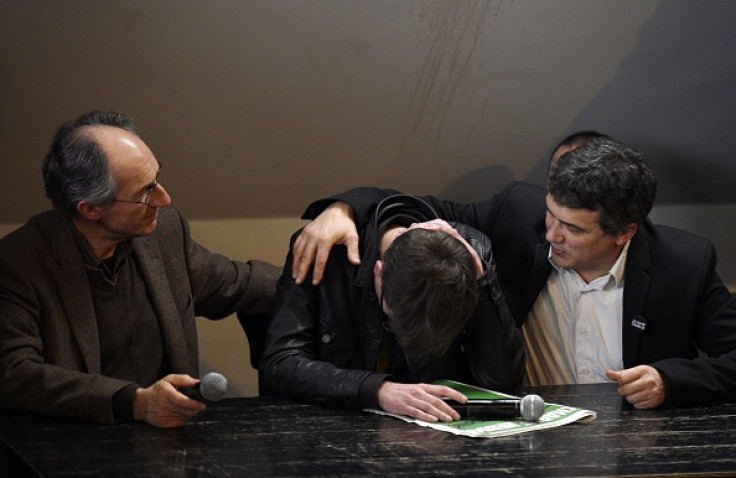Charlie Hebdo cartoonist Luz will no longer draw Prophet Mohammed

Charlie Hebdo's cartoonist Luz who depicted Mohammed on the cover of the satirical weekly following the attack on the magazine's headquarters in Paris says he will no longer draw the prophet.
In an interview with Inrockuptibles magazine that was published on 29 April, Renald Luzier, known as Luz, said: "I will no longer draw the figure of Mohammed. It no longer interests me.
"I'm not going to spend my life drawing [cartoons of Mohammed]."
I will no longer draw the figure of Mohammed. It no longer interests me. I'm not going to spend my life drawing (cartoons of Mohammed).
Luz was 30 minutes late to work on the morning of 7 January when militants attacked the Charlie Hebdo headquarters and killed 11 journalists.
The first cover of the satirical Charlie Hebdo magazine to be published following the Paris attacks featured the Prophet Muhammed holding a sign reading, "Je suis Charlie" with a tagline, "all is forgiven".
"The terrorists did not win," Luz told Les Inrockuptibles, reported AFP News. "They will have won if the whole of France continues to be scared."
The news was met with disappointment over social media.
Did the terrorists win? #CharlieHebdo cartoonist Luz 'will no longer draw the figure of #Mohammed' - http://t.co/xfCZDfiuU8 @JessicaChasmar
— The Washington Times (@WashTimes) April 29, 2015Top Charlie Hebdo cartoonist will no longer draw cartoons of Muhammad. His dead colleagues cry from their graves. http://t.co/6X8nZZkT4u
— Joe Walsh (@WalshFreedom) April 29, 2015Protest against Charlie Hebdo PEN award
Authors from around the globe have protested against the PEN American freedom of expression award for Charlie Hebdo.
In a recent letter issued by protesters against the award, including Pulitzer and National Book Award winners, Charlie Hebdo is criticized for ridiculing a, "section of the French population that is already marginalised, embattled, and victimised," reported The Guardian.
While the writers condemned the Charlie Hebdo massacre, they believe the award is undeserved.
"There is a critical difference between staunchly supporting expression that violates the acceptable, and enthusiastically rewarding such expression," an excerpt from the letter reads.
"The magazine seems to be entirely sincere in its anarchic expressions of disdain toward organised religion. But in an unequal society, equal opportunity offence does not have an equal effect."
Meanwhile, PEN America president Andrew Solomon told the Guardian: "If we only endorsed freedom of speech for people whose speech we liked that would be a very limited notion of freedom of speech.
"It's a courage award, not a content award."
© Copyright IBTimes 2024. All rights reserved.






